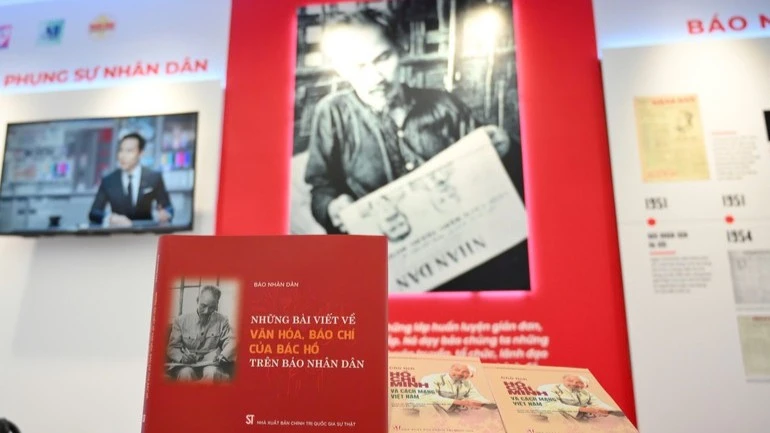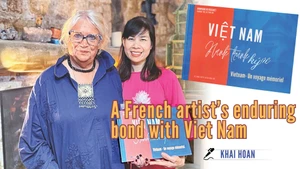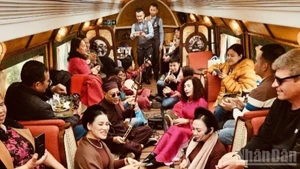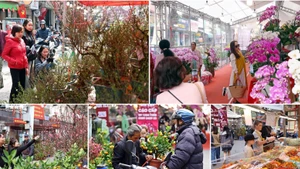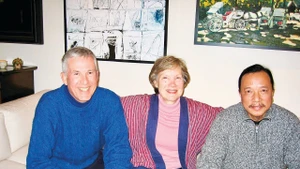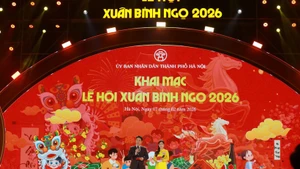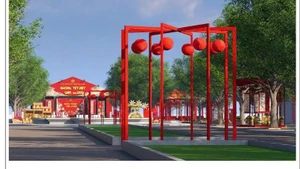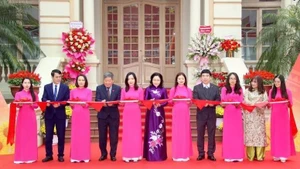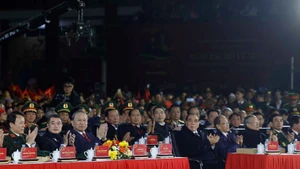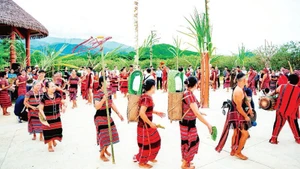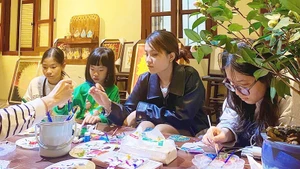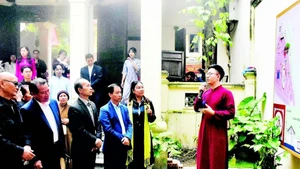The anthology opens with the article “What should a member of the Labour Party of Viet Nam be like?” and concludes with “Enhancing responsibility for the care and education of children,” written in 1969.
The book features a curated selection of 300 articles published over nearly two decades, beginning with Issue No. 2 of Nhan Dan, dated March 25, 1951. The final article appeared in Issue No. 526, dated June 1, 1969, shortly before President Ho Chi Minh passed away.
Through the passage of time, a continuous current of current affairs, ideology, politics, ethics, and culture has left an indelible mark within Prsident Ho Chi Minh’s writings published in Nhan Dan Newspaper.
Despite the immense responsibilities of leading the country in politics, military affairs, diplomacy, economics, and society, President Ho Chi Minh still devoted time to guiding the ideological, ethical, and informational front. His cultural writings made a direct contribution to enhancing the spiritual life and cultural level of the people, elevating the nation’s civilisation and heritage. These articles were grounded in a profound understanding of social realities, contemporary developments, and both domestic and international knowledge in culture and ideology.
At the outset, he asserted the essential qualities of a member of the Labour Party of Viet Nam—the predecessor to the Communist Party. The “Party spirit” was the foremost trait, demonstrated through the willingness to sacrifice personal interests for the Party’s mission, a high sense of responsibility, and an enthusiastic, proactive attitude toward assigned duties.
He emphasised the strength of the people, stating that “the will of the people is the will of Heaven,” and it is this collective will that determines the outcome of major national affairs.
He praised the greatness of Viet Nam’s first National Assembly, convened in January 1946, calling it a true people's assembly, where the public directly elected those who would lead the country.
He consistently stressed that “Revolutionary ethics are the foremost quality of every Party member and cadre”, underscoring the values of diligence, thrift, integrity, selflessness, and impartiality.
Under the leadership of the Communist Party, the collective strength of the people in taking control of their own destiny has been awakened, with each individual embodying revolutionary and heroic qualities. President Ho Chi Minh posed the question, “Who is a hero?” and offered illustrative answers:
“At sixteen, already a national emulation fighter
With no diploma, still achieved great merit
A hero in bomb-making, a hero in bomb-defusing
A hero in learning.”
That hero was Tran Dai Nghia, a patriotic intellectual who returned from abroad to join the national resistance against foreign aggression. Upon meeting him, President Ho Chi Minh remarked: “Our country lacks machinery, raw materials, and skilled workers. But we are rich in forests, mountains, and determination. You must take what you have learned abroad and apply it to the realities of our country, to serve the nation.” Engineer Tran Dai Nghia responded simply: “Yes, Sir.”
The article “The Disease of careerism” is a heartfelt piece of self-criticism, directly addressing the issue of jockeying for position within the Party’s ranks. It exemplifies President Ho Chi Minh’s honest and profound approach to internal discipline.
Throughout his writings, he frequently emphasised the vital task of self-criticism and mutual criticism. His feedback was often direct, sincere, and tinged with gentle irony. His love and care for children were vividly expressed in letters sent for Mid-Autumn Festival and International Children's Day, in essays such as “Respect for the Elderly” and, notably, “Gender Equality.”
To build and sustain a healthy society, he regarded the fight against corruption and waste as a particularly important mission. In his article “Not a Single Loophole”, he called for meticulous vigilance in financial and economic management to prevent theft of public resources.
Taken as a whole, the 300 selected articles written by President Ho Chi Minh and published in Nhan Dan Newspaper represent a living encyclopaedia—rich in ideology to chart the way forward, grounded in practical experience that inspires confidence and hope, and filled with knowledge to expand one’s intellectual horizon.
